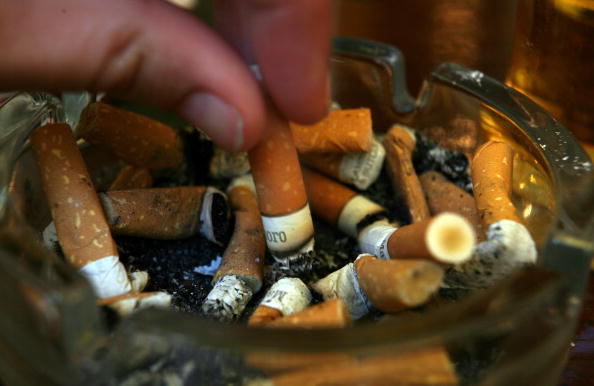Smoke-free zones and higher cigarette taxes deter young people from smoking, say American researchers
Professor says the $2 (£1.30) tax increase being discussed in Californian legislature would cut youth smoking initiation 'nearly in half'

Smoking bans and an increase on cigarette taxes have helped to discourage teens and young adults from taking up smoking by a third over an eleven-year period, according to a new study.
Researchers from the University of California in Merced (UCM) and from San Francisco (UCSF) studied the data spanning the length of time to establish the health, education, attitudes, and lifestyle habits of close to 4,000 respondents, representative of the US population.
The overall conclusion showed that adolescents and young adults living in areas with 100 per cent smoke-free bar laws were 20 per cent less likely to be smokers. Current smokers also smoked 15 per cent fewer days per month than those not living under these laws.
Also over the same period, smoke-free laws at state, county, and city level were becoming more commonplace and comprehensive, and cigarette taxes had increased.
In 1997, for example, no respondent had a 100 per cent probability of being covered by a smoke-free workplace law. By 2007, however, smoke-free workplace laws were in effect for 27.3 per cent of respondents.
The study’s primary author Anna Song – a health psychology professor with UCM – said smoke-free laws can deter smoking among young people even before they are of an age where some of the laws affect them directly.
She added: “Because smoking initiation typically occurs before youth enter the workplace, smoke-free workplace laws likely affect smoking initiation by showing kids that adult smoking norms reject smoking.
“The effects of smoke-free laws are similar or larger than other determinants of smoking, including age, sex, race, ethnicity, and poverty level.”
Lead researcher UCSF’s Professor Stanton Glantz, described how smoke-free workplace laws have the most powerful effect on smoking initiation, equivalent to the deterrent impact of a $1.57 (£1.02) tax increase.
Looking to the future, though, he said: “Our results suggest that the $2 (£1.30) tax increase being discussed in the California legislature would cut youth smoking initiation nearly in half.”
Subscribe to Independent Premium to bookmark this article
Want to bookmark your favourite articles and stories to read or reference later? Start your Independent Premium subscription today.

Join our commenting forum
Join thought-provoking conversations, follow other Independent readers and see their replies